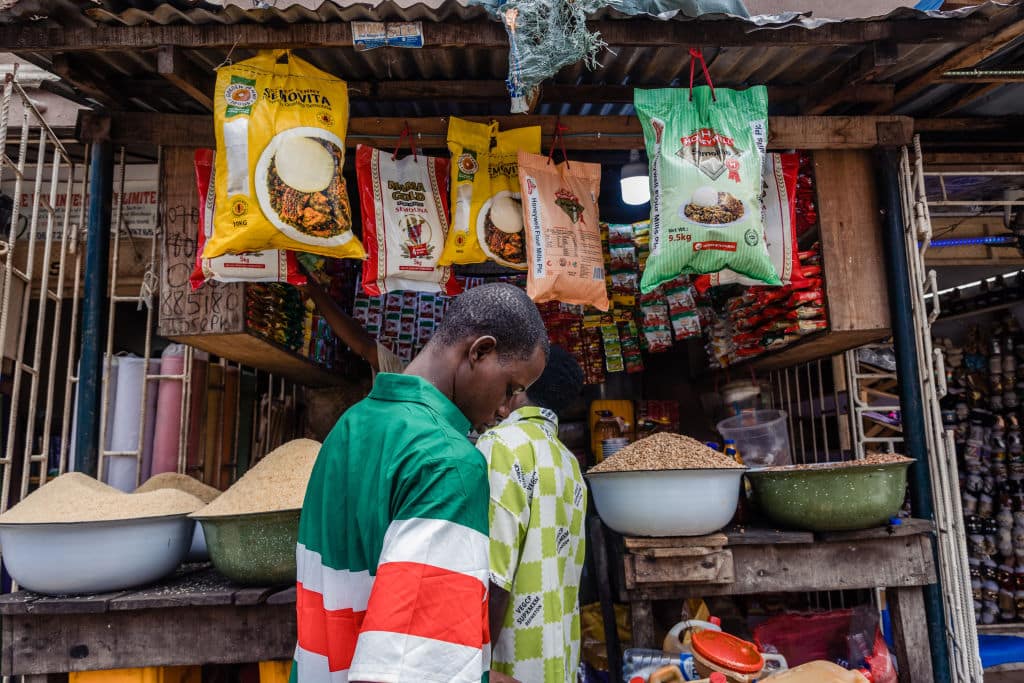The food and non-alcoholic beverages sector account for 11.81% of the overall inflation figures. Stakeholders recommend government interventions in critical sectors like agriculture, power, and energy.
According to a recent report by the National Bureau of Statistics (NBS), Nigeria’s headline inflation rate for June surged to 22.79%, marking a 0.38% increase from May. This rise underscores the persistent inflationary pressures plaguing the nation’s economy.
Furthermore, on a year-on-year basis, the inflation rate for June was 4.19% higher compared to the same period last year, indicating a trend of escalating inflation. Notably, the food and non-alcoholic beverages sector played a significant role, accounting for 11.81% of the overall inflation figures. Food inflation surged to 25.25% on a year-on-year basis, surpassing the 20.60% recorded in June 2022. In the month under review, food prices increased by 2.40%, which is 0.21% points higher compared to the rate in May. The year-on-year basis rate also exhibited a significant rise of 4.19% compared to the 18.60% rate registered in June 2022.
This report comes in the wake of President Bola Tinubu’s recent declaration of a state of emergency on food security. He directs that all matters related to food and water availability and affordability, as essential components of livelihood, be included within the purview of the National Security Council.
Kenneth Odoemenam, an aquaculture consultant and catfish farmer, expresses deep concerns about the escalating food prices in Nigeria and their far-reaching impact on both the economy and the wellbeing of its people. Odoemenam highlights the critical role of fish farming in providing essential protein to Nigerians and contributing significantly to food security. However, like other farmers, fish farmers face numerous obstacles that hinder fish production and increase operational costs.
Loading...
Odoemenam explains to FORBES AFRICA: “The alarming inflation rate [for June], coupled with the declaration of a food security emergency, underscores the seriousness of the situation for Nigeria’s fish farmers. One of the major impacts of inflation is on fish feed, which constitutes over 70% of the operational expenses.”
He adds: “As fish feed costs rise due to inflation, it directly affects the profitability of fish farmers and their ability to offer competitive prices for their fish. Additionally, the high inflation rate may lead to reduced consumer demand for the products, ultimately impacting farmers’ income.”
To address these challenges and promote sustainable growth in fish farming, Odoemenam urges the government to prioritize agriculture and fisheries development. He emphasizes the need for investment in research and technology to find innovative and cost-effective solutions that improve fish farming practices, enhance fish feed production, and minimize environmental impacts.
Furthermore, Odoemenam recommends providing fish farmers with accessible credit facilities and grants to enable them to adopt modern techniques, boost productivity, and adapt to changing market dynamics. Strengthening market connections and value chains will ensure fair prices for fish farmers while making fish more accessible and affordable to consumers.
In a press conference, Michael Olawale-Cole, President of the Lagos Chamber of Commerce and Industry, expressed concerns about the potential rise in inflation due to subsidy removal and the floating of the naira exchange rate.
“Increasing the monetary policy rate has, thus far, proven to be ineffective and insufficient in taming inflation. Therefore, there is a clear need for the government to strengthen its support to critical sectors like agriculture, power, energy. It should also look at ways to improve supply chains as well as cushion the cost of production,” he said.
He urges the government to look into improving supply chains and providing concessions for Micro, Small, and Medium Enterprises (MSMEs) to alleviate production costs and tackle unemployment.
Loading...
